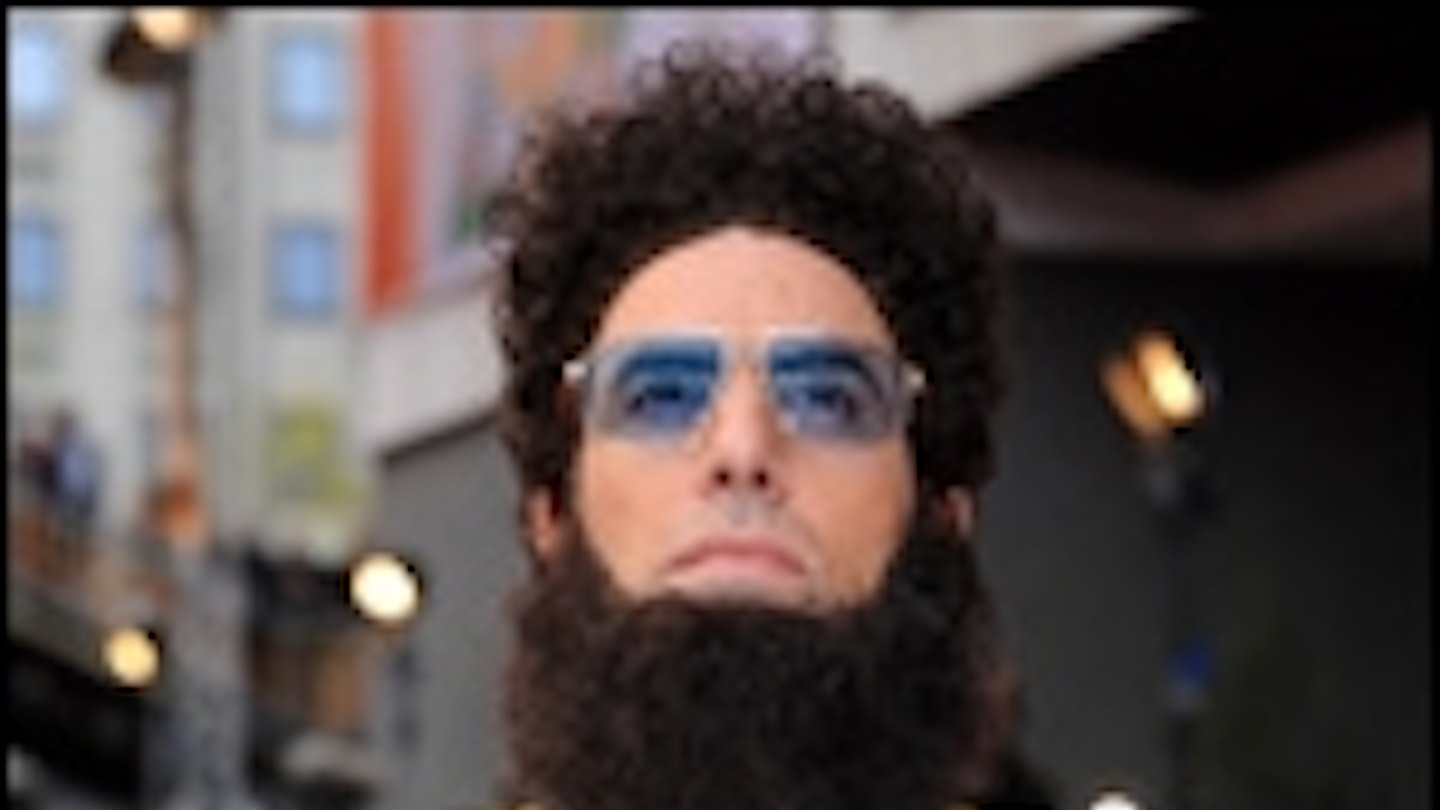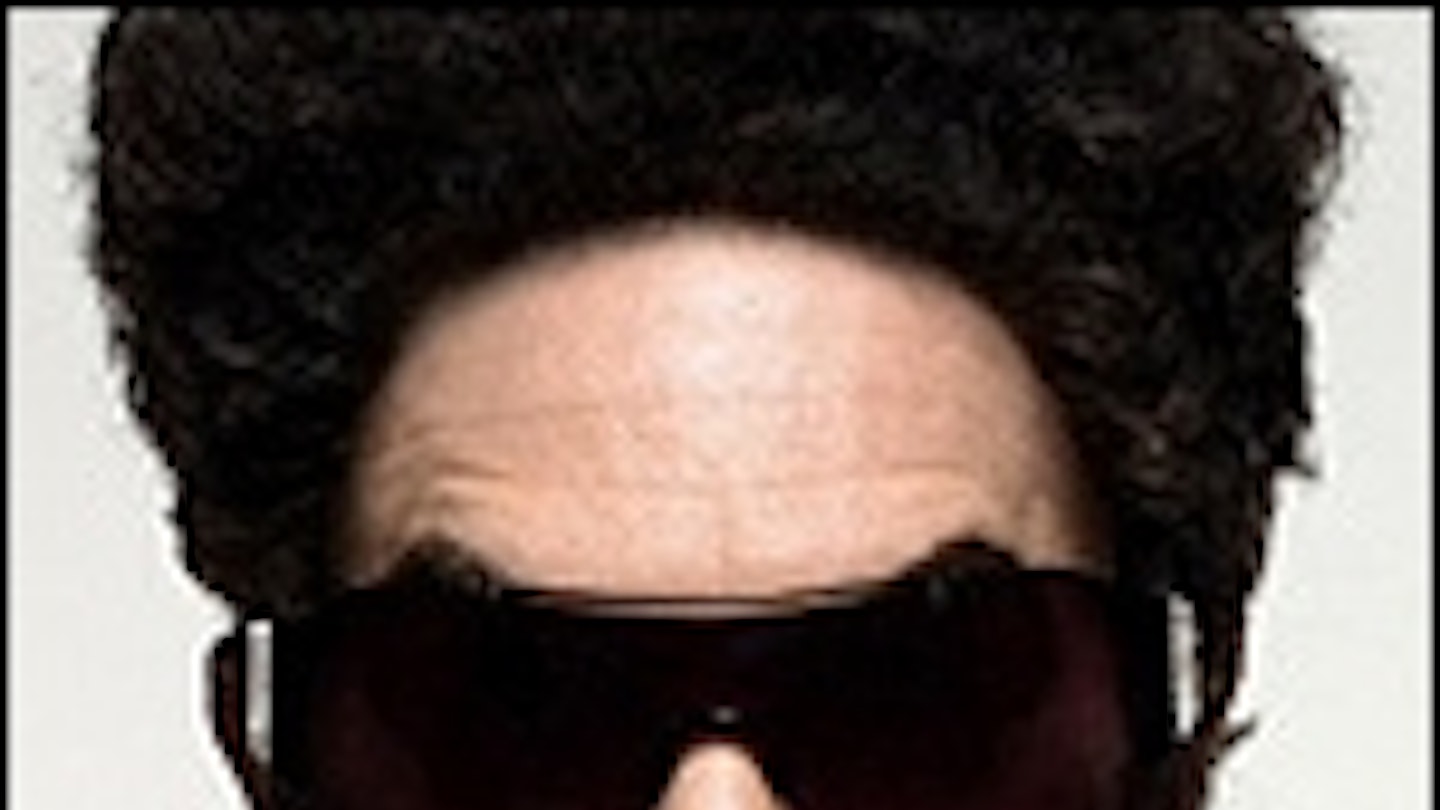Whenever Sacha Baron Cohen's filmography is discussed, it usually begins with Borat in 2006, which is when his stylised outsider clowning first horrified and, perversely, unified the USA by portraying it as the inclusive melting pot it always thought it was. This was a film that arguably still stands as a milestone in comic cinema; the first screening in Cannes that year – presented in a digital projection that looked more like a high-end snuff movie than a 20th Century Fox blockbuster – will never fade in the minds of those who saw it. Indeed, the splutters that greeted Borat Sagdayev's delight at meeting “a real-life chocolate face” – over the image of a bemused African-American politician – pretty much remains the dictionary definition of “nervous laughter”.
As with all such things, the follow-up was bound to disappoint, and, as if on cue, Brüno did. The fun with Borat was always trying to guess where the line would be crossed, and it was very much a tango between the prankster and the unwittingly pranked. With Brüno, though, there was only ever the initial frisson, like a You've Been Framed scenario in which the only vague interest was in how anyone would find their way out of it with their dignity intact (which, to be honest, they usually did). So the question was asked: what next for this button-pushing, space-invading buffoon genius?
The surprise is that he's gone back to the drawing board, and, while it's never quite as creaky or apologetically low-rent, his fourth character comedy is a return to the fictional basics of his now almost forgotten debut, Ali G Indahouse. Though it begins with a mockumentary-style nod to the second and third films – notably a deadpan dedication to the memory of Kim Jong-Il and some very, very funny fake news and verité footage – The Dictator seems more like a throwback, if not the missing link between that inauspicious, kind of embarrassing debut and the mighty Borat.
Once again we have Larry Charles to thank for helping Cohen through another of his successive impasses. Recognising that the game is up, as far as going under the radar is concerned, Cohen has made the right move in creating a much broader, more obviously cinematic character. He also now understands that any such character, no matter how exotic, must get to America pretty damn quick. And he knows that, whatever happens there, it can't stagnate. In the days of camera-phones and TMZ, such novelties as shock stunts and surprise cameos are getting harder to safeguard.
Which is where, presumably, Charles comes in. Charles, we must assume, is the real leader in this story, the mind that takes what must be hours of footage and shrinks it to less than 90 minutes. Most of it works, some of it doesn't, and the real reason this review is talking so much about other stuff is that the less you know about this film the better. Many of the gags in the trailer didn't even make the cut, and, as usual, Cohen has already parroted the best ones in his pre-release promotional appearances.
That said, it's a much warmer film than you might imagine. Aladeen is surprisingly empathetic, and his manchild-grows-up story – let's call it Zoolander meets Not Zoolander – hits all the right beats, aided notably by the terrific Anna Faris, a trouper for whom this kind of territory is like a zillionth tour of Iraq. There are, of course, many, many quibbles. Why not more of Aladeen at home, where he wins Golden Globes, has qualifications in medicine and fights a much smarter resistance movement? And why isn't there anything more sharp than a last-minute dig at America's real reasons for ousting foreign despots while ignoring its own less-than-clean foreign policy record?
But that's not really what this movie is here for. With its queasy sex jokes, male nudity and (very young) teen-appeal scatology, it seems really just an attempt to make up for the ground lost with the irritating Brüno, which it certainly does. The shame, though, is that, unlike Brüno even, it doesn't appear to confront anything, conflating Asian stereotypes with Arab until Aladeen's national identity seems to be neither here nor there. Still, when it's funny, it's very funny, and when Cohen's on form, there's still no one around who's so wide-eyed and yet so exquisitely and punishingly wrong.





